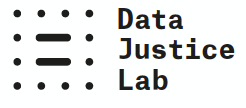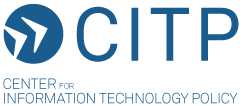Home
Use our global calendar of privacy events to locate an event near you.
FILTER BY

The Annual Conference of the European Criminal Law Academic Network (ECLAN) will be on ‘Privacy and Surveillance in a Digital Era: Challenges for Transatlantic Cooperation and European Criminal Law’ and will take place at the School of Law of Queen Mary, University of London on 17-18 May 2018.
The chosen theme revolves around state surveillance activities and transatlantic relations between the EU and the US regarding legal assistance and transfer of personal data. In that respect, two keynote speeches are foreseen -one for each of the two jurisdictions- along with four panel discussions, which will touch upon the following topics: Session 1: Collection and Exchange of Digital Evidence: Possible Models and Challenges for Human Rights and the Rule of Law; Session 2: Telecommunications Data: From Digital Rights Ireland to Watson and Beyond; Session 3: Surveillance of Mobility as Preventive Justice and; Session 4: Countering Transborder Crime through Mutual Legal Assistance. Mr Mark Rotenberg from Electronic Privacy Information Centre (EPIC) will deliver the keynote speech on the Microsoft case currently pending in the US.
How to book
This event is free but prior booking is required. Register online via Eventbrite.
Please note, Registration for this conference closes on 15 May 2018.

The collection and processing of massive amounts of data has become an increasingly contentious issue. Our financial transactions, communications, movements, relationships, all now generate data that are used to profile and sort groups and individuals. With the platformisation of digital media alongside governmental and corporate uses of citizen data, developments in AI, the Internet of Things, smart homes and smart cities, the systematic collection and analysis of massive data sets across our social life is being normalised and entrenched – what has been described as the ‘datafication’ of society.
With the emergence of this data paradigm comes a new set of power dynamics requiring investigation and critique. Whilst promises of value-neutral information and possibilities for prediction are said to advance better responses to a range of social problems, they may also have serious implications for social and economic inclusion, autonomy, basic freedoms, and established notions of ethics, trust, accountability, governance and citizenship.
What are the implications for social justice? How do we understand social justice in an age of datafication? In what way do initiatives around the globe address questions of data in relation to inequality, discrimination, power and control? What is the role of policy reform, technological design and activism? How do we understand and practice ‘data justice’? How does data justice relate to other justice concerns?
This conference will examine the intricate relationship between datafication and social justice by highlighting the politics and impacts of data-driven processes and exploring different responses. Hosted by the Data Justice Lab at Cardiff’s School of Journalism, Media and Cultural Studies (JOMEC), it will bring together international scholars, practitioners, and activists to engage with data from a social justice perspective. Confirmed speakers include:
Anita Gurumurthy (IT for Change, India)
David Lyon (Queen’s University, Canada)
Evelyn Ruppert (Goldsmiths, University of London, UK)
Rob Kitchin (Maynooth University, Ireland)
Sasha Costanza-Chock (MIT Center for Civic Media, US)
Seeta Peña Gangadharan (London School of Economics, UK)
Solon Barocas (Cornell University, US and FAT/ML)
The conference will combine academic papers with hands-on workshops relating to methods of investigation, policy and design. We welcome submissions of abstracts for both types of sessions.
Themes of the conference include (but are not limited to):
- Social justice and data
- Data governance
- Data discrimination
- Data colonialism
- Data sovereignty
- Digital labour
- Prediction and Preemption
- Data scores and dashboards
- Data ethics
- Data policy and reform
- Social justice-informed design
- Uses of data by social justice groups
- Data activism and advocacy
Submissions
Deadline for 250-word abstracts: 27th of November, 2017.
Submit via EasyChair: https://easychair.org/conferences/?conf=dj2018
All submissions must include a title, author name(s), institutional affiliation(s) and full contact information (mailing address, email address). If you propose a workshop or practical demonstration, please provide a clear statement of purpose and a detailed description of activities, as well as any infrastructure requirements.
Information
Cardiff is a 2-hour train journey West of London and Heathrow airport. The closest airports are Cardiff and Bristol.
‘Data Justice’ will take place shortly before the ICA 2018 conference in Prague, 24-28 May. Flights to Prague take 2 hours from Heathrow.
Conference fee:
Full fee: £75 (early bird) / £100
Reduced student fee: £50 (early bird) / £75
Conference organizing committee: Lina Dencik, Arne Hintz, Joanna Redden (Data Justice Lab, Cardiff University, UK)
For information about the Data Justice Lab, see: http://www.datajusticelab.org

Increasingly, many people are raising concerns that the growing prevalence of artificial intelligence (AI) will exacerbate human bias, manipulate consumers, and cause other harms. Whether or not these concerns have merit, most proposed solutions have been substantially lacking: they either fail to effectively reduce potential harm, stifle innovation, or both. What is needed is a proposal that offers policymakers a viable middle ground that maximizes the potentially vast benefits of algorithmic decision-making while minimizing the risks.
Join the Center for Data Innovation for a presentation of its new report and a panel discussion on how policymakers can hold algorithms accountable while accelerating adoption of AI.
Date and Time:
- Tuesday, May 22, 2018, from 1:00-2:30 PM
Location:
- 1101 K Street NW, Suite 610, Washington, DC, 20005
Speakers:
- Daniel Castro, Director, Center for Data Innovation (Moderator)
- Neil Chilson, Senior Fellow for Technology and Innovation, Charles Koch Institute, and former Acting Chief Technologist, Federal Trace Commission
- Joshua New, Policy Analyst, Center for Data Innovation
- Lauren Smith, Policy Counsel, Future of Privacy Forum
- Frank Torres, Director of Consumer Affairs, Microsoft
- Additional speakers to be announced.


Arvind Narayanan and I are excited to announce that the Workshop on Technology and Consumer Protection (ConPro ’18) will return in May 2018, once again co-located with the IEEE Symposium on Security and Privacy.
The first ConPro brought together researchers from a wide range of disciplines, united by a shared goal of promoting consumer welfare through empirical computer science research. The topics ranged from potentially misleading online transactions to emerging biomedical technologies. Discussions were consistently insightful. For example, one talk explored the observed efficacy of various technical and non-technical civil interventions against online crime. Several—including a panel with technical and policy experts—considered steps that researchers can take to make their work more usable by policymakers, such as examining and documenting the agreement between researched practices and a company’s public statements.
We think the first workshop was a success. Participants were passionate about the social impact of their own research, and just as passionate in encouraging similarly thoughtful but dramatically different work. We aim to foster and build this engaged and supportive community.
As a result, we are thrilled to be organizing a second ConPro. Our interests lie wherever computer science intersects with consumer protection, including security, e-crime, algorithmic fairness, privacy, usability, and much more. Our stellar program committee reflects this range of interests. Check out the call for papers for more information. The submission deadline is January 23, 2018, and we look forward to reading this year’s great work!

11th Annual Privacy Law Scholars Conference (PLSC 2018), to be held Wednesday–Thursday, May 30–31 at the George Washington University Marvin Center in DC.
PLSC is a paper workshop. There is no opportunity or obligation to publish flowing from it. Our goal is simply to improve and provide support for in-progress scholarship. To do so, PLSC assembles a wide array of privacy law scholars and practitioners from around the world to discuss the papers. Scholars from many disciplines (psychology/economics, sociolo
We follow a format where a discussant, rather than the author, introduces and leads a discussion on the paper. There are no panels nor talking heads, and everyone is a “participant.” Participation is by invitation only; please do not transfer this invite to another person.
PLSC is co-sponsored by the George Washington University Law School and the Berkeley Center for Law & Technology.
CALL FOR ABSTRACTS & OUTLINES
If you would like to workshop a paper, please create an account on our conference management system, and submit a title, short abstract that grounds your work in a literature (see below), and high-level outline by Friday, December 22, 2017: https://cmt3.research.microsof
Email Chris ([email protected]) if you encounter any problems.
We will announce accepted abstracts on January 19, 2017.
Workshop versions of the paper will be due April 27, 2018. There is no commitment (or opportunity) to publish.
Please note, there is a large and growing list of privacy scholarship. For instance, the SSRN eJournal for privacy has over 3,000 papers, and this excludes pre-internet works, books, and scholarship from non-legal fields. http://papers.ssrn.com/sol3/JE
In writing your abstract, please situate your project in a literature. If your topic is too new or spans multiple literatures, please indicate this. Please also explain the contribution your work makes to the literature.
The Program Committee has adopted new rules on sponsored scholarship at PLSC. We will not accept papers that are subject to pre-publication review/veto, or those where the sponsor controls the content of the paper. We furthermore require a conflicts of interest statement on scholarship.
When we survey participants, the most common complaint surrounds late papers. Thus, we reserve the right to cancel workshops if the paper draft is not provided sufficiently in advance for meaningful evaluation by participants.
Conference participants will be expected to read the papers in advance. Thus, please calendar two days of preparation time in advance of PLSC.
HOTEL
We do not have a hotel block because we’ve found that participants can easily locate rooms in DC.
Be seeing you at PLSC 2018,
Chris Jay Hoofnagle & Dan Solove
Program Committee
Franziska Boehm, University of Münster
Ryan Calo, University of Washington
Danielle Citron, University of Maryland Carey School of Law
Julie Cohen, Georgetown University Law Center
Deven Desai, Georgia Institute of Technology
Woodrow Hartzog, Samford University’s Cumberland School of Law
Kristy Hughes, University of Cambridge
William McGeveran, University of Minnesota Law School
Paul Ohm, Georgetown University Law Center
Paul Schwartz, Berkeley Law
Priscilla Regan, George Mason University
Neil Richards, Washington University Law

BIOMETRICS INSTITUTE PRIVACY WORKSHOP | 1 JUNE 2018 | DARLING HARBOUR SYDNEY
This half-day workshop will take place alongside the Biometrics Institute Asia-Pacific Conference 2018.
Details will be announced shortly.
For further information, please contact Christine at [email protected]

The theme of this conference is Surveillance Beyond Borders and Boundaries. The theme is broad in the sense that we understand borders and boundaries as both literal and metaphoric. It is meant to capture how surveillance operates on and beyond territorial borders as well as the many ways that data flows today challenge boundaries between institutions and disciplines. We call for papers and panels from all areas of critical enquiry that seek to examine such complex articulations and impacts of surveillance in contemporary society. We invite participants to discuss, develop or demolish the borders and boundaries of surveillance. In particular, we welcome interventions that are truly interdisciplinary, multi- disciplinary, or transdisciplinary in scope and reach, from academics, activists, artists, and policy-makers, especially those who sit on the borderlands between academia and practice-based knowledge production.
Capacity for this meeting has been reached. If you would like to be added to the waitlist, please email [email protected].
Speakers:
Angelique Carson, CIPP/US, Editor, The Privacy Advisor, IAPP
Christopher Wolf, Senior Counsel, Hogan Lovells, Founder and Board Chair, Future of Privacy Forum
Topic:
Privacy Pride 2018: Online hate speech and how we stop it
Time:
6 – 8 p.m.
Special thank you to LGBTQ Affinity Group Leader, Cobun Keegan, CIPP/US, CIPM, Compliance Analyst, IBA Accountability Program, Council of Better Business Bureaus, for organizing this event.
Eligible CPE Credits:
CIPP/US and CIPP/G.
1.0 CPE
For all other IAPP certifications, credits will be applied to Group B. If you have certification questions, please read our cpe policy or e-mail [email protected]. Credit will be awarded two weeks after date of event.
